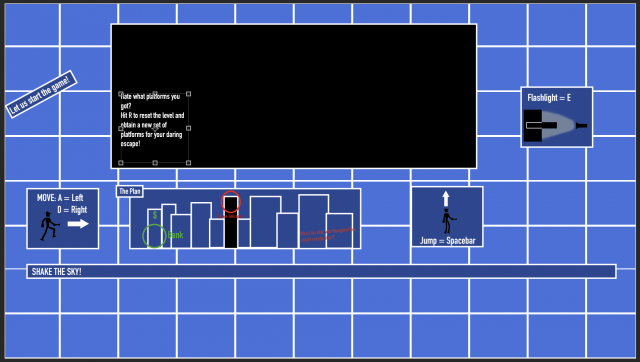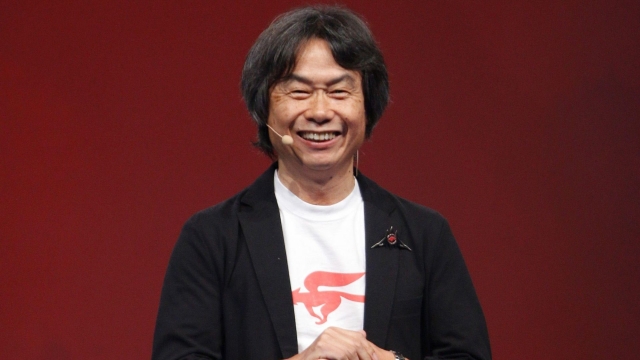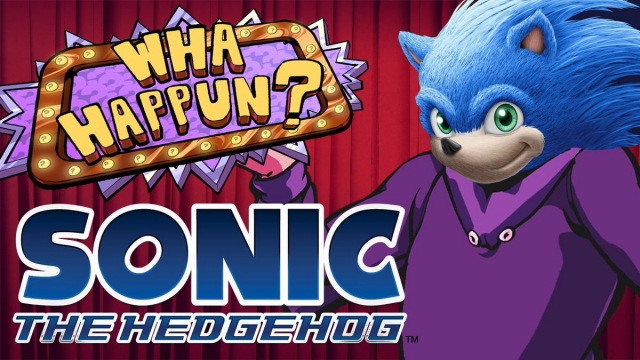
Making Games Is Hard
Before I started writing for GameGrin, I had a dream: to become a game developer. I was obsessed with videogames throughout my school years, so I started taking classes to pursue that dream. After horribly failing mathematics, I decided to go to university and learn as much as I could and ultimately be involved in the gaming industry.
And you know what? It sucked.
Don’t get me wrong, getting to play and watch stuff about videogames was awesome and was a great change from the mountains of homework I used to get. However, actually developing a game was a lot more complicated than I had expected. Nonetheless, I powered through and tried to create the games I had floating around in my head.
They were terrible.
One was a game based on the ATB system from the Final Fantasy series, another was about keeping a ball in the air, another was essentially Pac-Man, and the last game was a platformer where you couldn’t see your character. They sound interesting right? Yeah, no. You should see the absolute messes that they are.
Do you know how hard it is to code a character to move and jump with animations? From scratch? It is not easy and when I discovered a single semicolon solved one of my biggest problems, I wept tears of joy and sadness because my game still had so many other issues I had to deal with. Issues like figuring out how to score points, UI, title screen etc. Moreover, I was using Unity, where a lot of those processes were streamlined and easy to use. I spent days to months working on games that were pretty simple and probably not as fun as I hoped they would be.

Probably the best-looking game I’ve ever made and it’s mainly in the dark. Also, those controls took days to program correctly.
And then I see games like Undertale, Stardew Valley and Papers, Please. Games created by talented individuals with the drive, passion and time to create games that enthralled millions. And they all started when I was in university: Figuring out how the hell this stupid code isn’t working, like seriously there’s no errors! Where did I go wrong!?
So, suffice to say, I dropped my program and took up writing. A decision made easier thanks to COVID-19.
I knew that if I worked hard enough and bettered myself every day I would be able to do the same things indie developers can do and release something that would be played by thousands of people. But I simply didn’t have the same patience and will to continue down the same path. Coding was too stressful: I felt like I wasn’t skilled enough to truly bring out the games in my head.
However, the experience of going to university to learn about game development let me appreciate game developers as a group of people.
Quick, name a QA tester.
Any QA tester from your favourite game.
There’s a 90% chance that you can’t. Next to no one pays attention to names in the credits. I can name Mick Gordon, the man behind the incredible soundtrack from DOOM (2016) and DOOM Eternal. I can name Goichi Suda, director of No More Heroes and Killer7. Neil Druckmann, head writer of The Last of Us. Tetsuya Nomura, the mind behind the insanity of Kingdom Hearts. Shigeru Miyamoto, the face of Nintendo. I can name the leads and heads of the projects, and I can recognise the voices of various voice actors...but I cannot name someone who had to replay the same levels, the same storylines and quests over and over again to root out the bugs that would ruin your game.

Shigeru Miyamoto, the face of Nintendo.
I only know one QA tester. He was the head tester for the game No More Heroes...and I only know about it because he has a YouTube channel that does lets plays and covers gaming disasters.
I looked into what QA testing pays and it’s about £13 an hour. That’s not a lot, and game testers often work pretty harsh hours to ensure the games you play now aren’t blowing up your system of choice with varying degrees of success. There are stories of game testers seeing how terrible the game they are testing is and doing their best to convince the developers to delay or change features, but sometimes they just get laughed off or told that it’s not their job.
These people are underappreciated, for all the work they do and yet there’s barely anyone who can name one of them. It’s just as soul-sucking as a normal retail or office job.
But it’s not like the programmers or the animators of big studios get better treatment. It’s only in recent years that we’ve begun to learn the harsh conditions those in the trenches of development have to go through while the heads of their respective teams and such reap the recognition (although that may not be a good thing given the internet’s history of misblaming). Crunch culture, the lack of financial stability, expansions of scope and over overambition, the often predatory decisions of those in power that try and change the game into something worse. And I have heard some really terrible experiences behind the development of games like L.A. Noire, Haze, Sonic Boom: Rise of Lyric, Marvel VS. Capcom: Infinite, Drake of the 99 Dragons, Aliens: Colonial Marines and many, many more.
This is a good time to bring up that No More Heroes QA tester again, because he has a YouTube series called What Happun? They go into detail about the troubled development behind the scenes of various games that illustrates how hard developing games can be much better than I can explain in this article. You will lose faith in the gaming industry after a few videos so I highly recommend watching some so you can just see how screwed up things were behind great and terrible (but mostly terrible) games (and movies too). Click here to see the full playlist.

Not the movie, the 2006 game. And that was just rife with problems during development. Go watch it.
Simply put, game development is hard, and every game released onto shelves and digital stores are miracles in themselves. So when obviously lazy and passionless games are put up there, it’s spitting in the face of people who poured their heart into each and every project. From Studio MDHR, who remortgaged their houses in order to have the money to develop Cuphead to the now-defunct Digital Homicide and their infamous asset flips and legal war with Jim Sterling and everyone else on the internet.
So appreciate every game you play that you can see love and effort put into, because the people behind each one deserve at least that.








COMMENTS